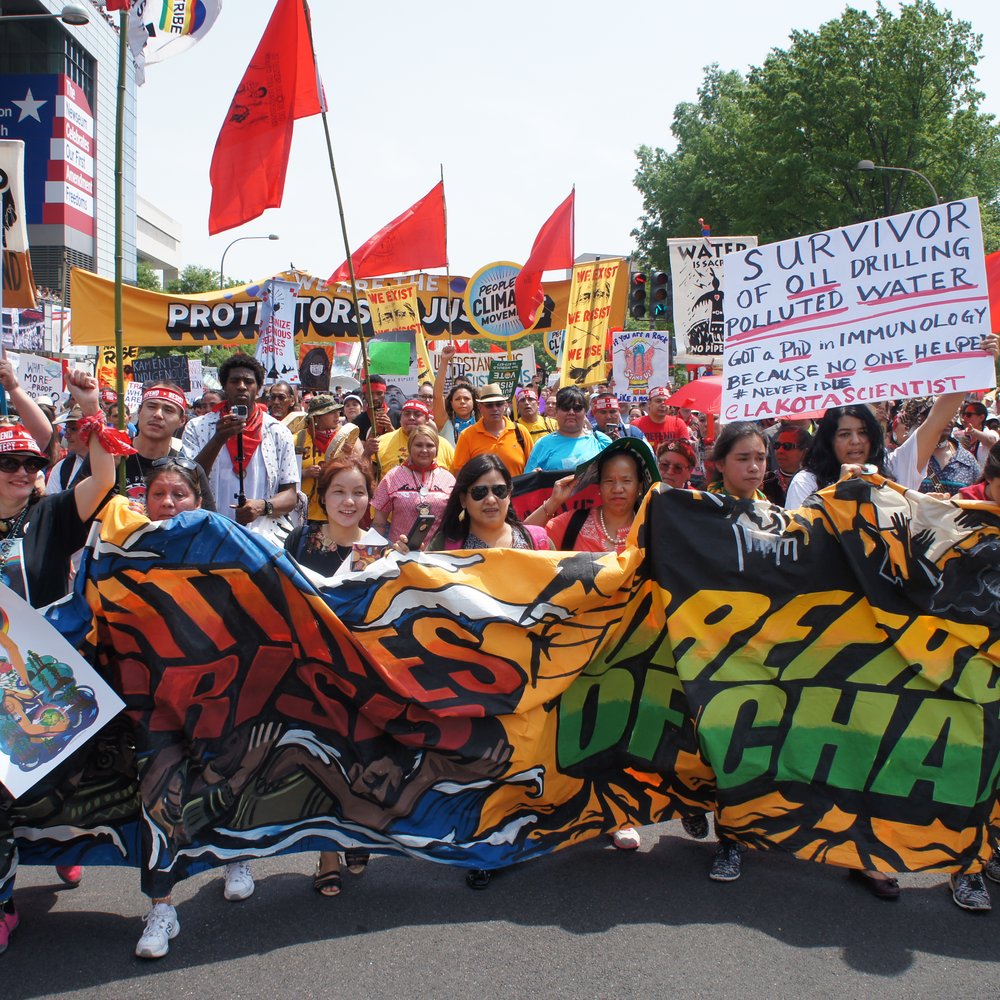Human rights defenders & business in 2022: People challenging corporate power to protect our planet

Emily Arasim/WECAN International
Between January 2015 – March 2023, the Business & Human Rights Resource Centre tracked more than 4,700 attacks against human rights defenders raising concerns about harmful business practice. In 2022 alone, we tracked 555 attacks, revealing that on average more than 10 defenders were attacked every single week for raising legitimate concerns about irresponsible business activity. Three-quarters of attacks (75%) were against climate, land and environmental defenders. Over a fifth of attacks (23%) were against Indigenous defenders, who are protecting over 80% of the world’s remaining biodiversity, although they comprise approximately 6% of the global population.
This is just the tip of the iceberg. Our research is based on publicly available information and as many attacks, especially non-lethal attacks (including death threats, judicial harassment and physical violence), never make it to media sources and there is a significant gap in government monitoring of attacks, the problem is even more severe than these figures indicate.
Additional key findings from our analysis of attacks in 2022 include:
- Latin America and Asia & Pacific continue to be the most dangerous regions for defenders.
- Brazil, India and Mexico had the highest numbers of attacks against defenders. Brazil, the most dangerous country overall for defenders, is set to host the G20 presidency in 2024.
- Nearly one-quarter of attacks were against women human rights defenders.
- Mining is the most dangerous sector for defenders, with nearly 30% of attacks. This has been consistent since we began tracking in 2015 – showing little progress has been made to prevent attacks in this sector.
- In cases where information was available publicly about perpetrators, police were the leading perpetrators of attacks, followed by the malicious use of judicial systems to criminalise and stop the work of defenders. Other perpetrators included local and State authorities, armed forces, illegal loggers or miners, employers and private security guards.
- In cases where attacks could be connected with a specific company or a business project (43% of total attacks), the highest number of attacks related to companies headquartered in India and the United Arab Emirates. Both countries have tried to position themselves as global and environmental leaders and are hosting major multilateral events in 2023 – G20 and COP28, respectively.
The scale of attacks against people protecting our rights and environment from business-related harms shows the extent to which governments are failing in their duty to protect human rights and that voluntary action by companies and investors is insufficient to prevent, stop and remedy harm. There is an urgent need for robust mandatory human rights and environmental due diligence legislation grounded in safe and effective stakeholder engagement with strong safeguards for human rights defenders.
Read the briefing
Human rights defenders & business in 2022: People challenging corporate power to protect our planet